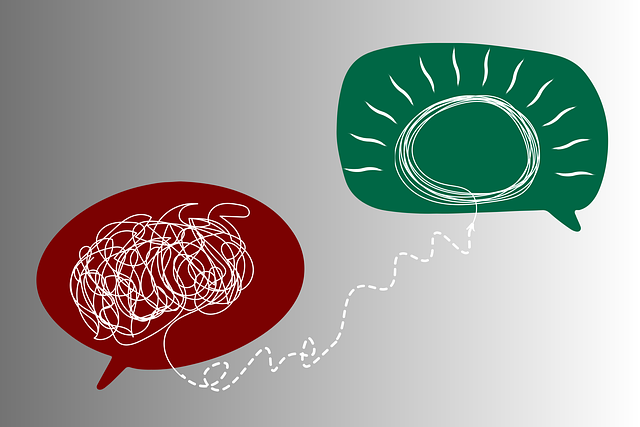Mindfulness-based psychotherapy integrates traditional talk therapy with mindfulness practices like meditation, breathing exercises, and yoga to address mental health challenges holistically. This approach, rooted in Buddhist philosophy, promotes present-moment awareness, non-judgmental observation, and acceptance of thoughts and feelings. Proven effective for depression, anxiety, and stress-related disorders, mindfulness-based therapies include Mindfulness-Based Stress Reduction (MBSR), Mindfulness-Based Cognitive Therapy (MBCT), and Acceptance and Commitment Therapy (ACT). Research validates its effectiveness in emotional regulation, reducing rumination, and promoting self-understanding, leading to improved mental health outcomes. Continuous education through certification programs and professional networks is crucial for mental health professionals to master these techniques.
“Unleash the power of mindfulness for transformative mental health support with Mindfulness-Based Psychotherapy (MBP). This holistic approach integrates ancient wisdom with modern therapy, offering a novel path to well-being. From understanding MBP’s core principles and historical roots to exploring diverse therapy types and practical techniques, this article guides you through the benefits and practices.
Discover how MBP diverges from traditional talk therapy, its advantages in clinical settings, and essential training resources for mental health professionals. Embrace a new era of psychotherapy that cultivates mindfulness for lasting mental health improvements.”
Understanding Mindfulness-Based Psychotherapy: A Holistic Approach to Mental Health

Mindfulness-based psychotherapy is a holistic approach to mental health that focuses on training individuals to be fully present and engaged in the current moment, accepting things as they are without judgment. This therapeutic method combines traditional talk therapy with mindfulness practices such as meditation, breathing exercises, and yoga. By integrating these techniques into conventional psychological treatment, it offers a comprehensive framework for addressing various mental health challenges.
This approach recognizes that many psychological struggles stem from our reactions to thoughts and feelings rather than the events themselves. Mindfulness psychotherapy aims to help individuals develop greater self-awareness, observe their thoughts and emotions without getting swept away by them, and cultivate a sense of calm and balance. This empowerment promotes better coping strategies, enhances overall well-being, and fosters resilience in navigating life’s challenges, ultimately leading to improved mental health.
The Principles of Mindfulness and Its Historical Roots

Mindfulness-based psychotherapy draws upon ancient wisdom and modern scientific understanding, offering a powerful tool for enhancing mental health and well-being. At its core, mindfulness is the practice of cultivating present-moment awareness, non-judgmental observation, and acceptance of one’s thoughts and feelings. This principle dates back thousands of years to Eastern philosophical traditions, particularly within Buddhism, where it was developed as a path to enlightenment. Over time, these practices evolved into formal meditation techniques that have been studied extensively for their mental health benefits.
In contemporary psychotherapy, mindfulness has gained prominence due to its effectiveness in treating various conditions, such as depression, anxiety, and stress-related disorders. Western psychologists integrated these ancient practices with evidence-based therapeutic approaches, creating a synthesis that empowers individuals to develop a deeper understanding of themselves. By focusing on the present moment, mindfulness helps individuals detach from negative thought patterns, reduce emotional reactivity, and foster greater resilience in their mental health journey.
Different Types of Mindfulness Therapies for Various Mental Health Conditions

Mindfulness-based therapies have evolved to offer a diverse range of approaches tailored for specific mental health conditions. One prominent form is Mindfulness-Based Stress Reduction (MBSR), designed to help individuals manage stress, anxiety, and associated physical symptoms through meditation and mindfulness exercises. This approach encourages patients to focus on the present moment, accept their feelings without judgment, and develop a non-reactive mindset.
Another popular therapy is Mindfulness-Based Cognitive Therapy (MBCT), which combines cognitive behavioral techniques with mindfulness practices. MBCT is particularly effective for preventing depressive relapses by helping individuals recognize early warning signs of depression and implement coping strategies. There’s also Acceptance and Commitment Therapy (ACT), emphasizing the acceptance of thoughts and feelings while committing to valued actions, making it beneficial for treating anxiety disorders, depression, and substance abuse issues in mental health psychotherapy.
How Mindfulness Psychotherapy Differs from Traditional Talk Therapy

Mindfulness-based psychotherapy offers a unique approach to mental health treatment, setting it apart from traditional talk therapy. Unlike conventional methods that primarily focus on discussing past experiences and emotions, mindfulness therapy encourages patients to stay present and non-judgmentally aware of their thoughts and feelings. This shift in perspective is a game-changer for many individuals struggling with anxiety, depression, and stress-related disorders.
In traditional talk therapy, the emphasis is often on understanding and interpreting past events and memories. In contrast, mindfulness psychotherapy invites clients to observe their mental processes without getting entangled in them. By fostering a sense of awareness and acceptance, this approach empowers individuals to develop healthier coping mechanisms and improve overall well-being. This method has been shown to be effective in enhancing emotional regulation, reducing rumination, and promoting a deeper understanding of oneself, ultimately leading to better mental health outcomes.
Benefits of Incorporating Mindfulness in Clinical Practice

Incorporating mindfulness into clinical practice has emerged as a powerful tool in the field of mental health psychotherapy. Mindfulness techniques, such as meditation and mindful breathing exercises, enable therapists to help clients develop a deeper awareness of their thoughts, emotions, and bodily sensations. This heightened self-awareness can lead to improved emotional regulation, reduced stress, and better coping strategies for managing mental health issues.
The benefits extend beyond the client-therapist relationship. Mindfulness-based psychotherapy promotes a more present and attentive therapeutic environment, fostering a strong therapeutic alliance. This, in turn, can enhance treatment adherence and outcomes, making it a valuable addition to the toolkit of any mental health professional. By integrating mindfulness practices, therapists can offer their clients a holistic approach to well-being that goes beyond traditional talk therapy.
Practical Techniques and Exercises in Mindfulness-Based Psychotherapy

Mindfulness-based psychotherapy incorporates practical techniques and exercises designed to help individuals cultivate present-moment awareness, non-judgmental acceptance, and self-compassion—core components of mindfulness. These practices often include guided meditations, breathing exercises, and mindful movement, such as yoga or tai chi. Therapists guide clients through these activities to promote a deeper understanding of their thoughts and emotions without reactionary attachment.
One common exercise involves body scans, where individuals focus attention on different parts of their bodies, observing sensations without judgment. Another technique is mindfulness of breath, encouraging clients to pay close attention to the natural rhythm of inhalation and exhalation, helping them anchor in the present moment. These exercises not only enhance mental health psychotherapy sessions but also equip clients with tools to integrate mindfulness into their daily lives, fostering greater resilience and overall well-being.
Integrating Mindfulness: Training and Resources for Mental Health Professionals

Integrating mindfulness into psychotherapy has become a powerful tool for mental health professionals. Mindfulness-based psychotherapy (MBP) combines traditional talk therapy with practices like meditation, breathing exercises, and present-moment awareness to help clients manage stress, anxiety, and depression. Training in MBP is essential for mental health professionals to effectively utilize these techniques. Many reputable institutions offer certification programs that teach practical skills for integrating mindfulness into treatment plans.
Resources such as online courses, workshops, and professional networks provide ongoing support and opportunities for learning. Mental health professionals can enhance their practice by staying informed about the latest research and best practices in MBP. This continuous education ensures they can offer evidence-based, compassionate care to their clients, fostering deeper connections and more positive outcomes in mental health psychotherapy.
